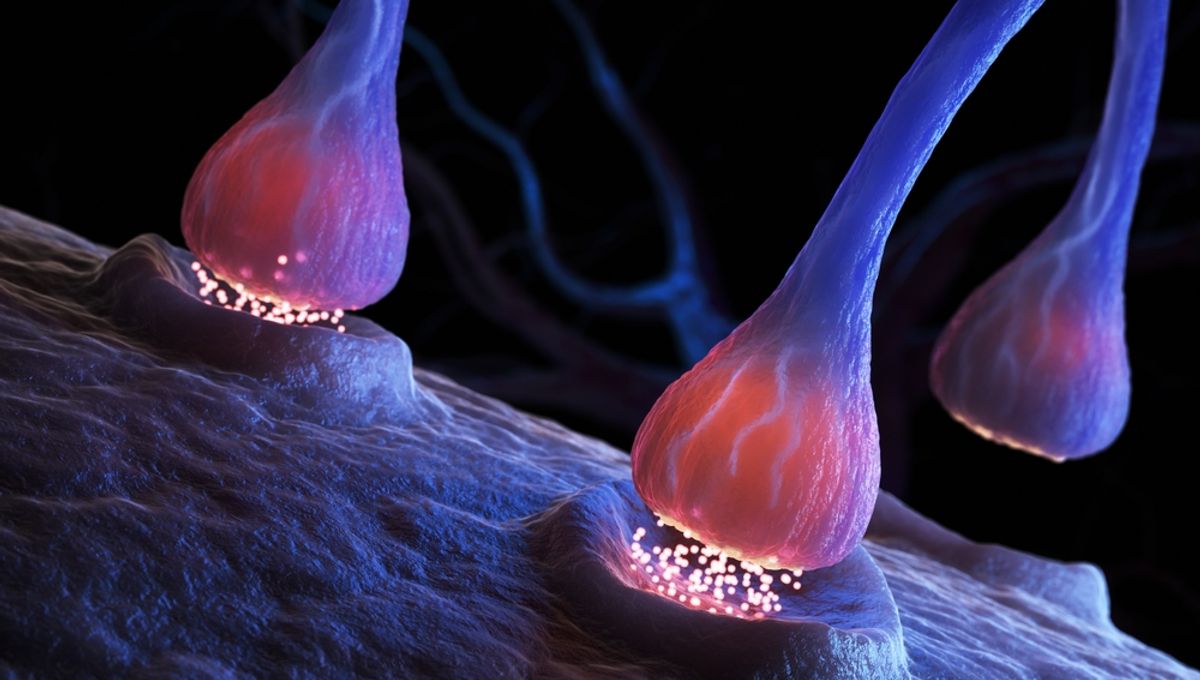
Scientists have developed a new antidepressant compound that appears to get to work significantly faster than current treatments for depression. The drug has only been tested out in mouse brains so far, but the new research could eventually pave the way for a new fast-acting antidepressant.
Most commonly prescribed antidepressants, such as selective serotonin reuptake inhibitors (SSRIs), target the serotonin transporter. Serotonin is a multi-faceted neurotransmitter that’s involved in a number of complex biological functions, including mood, cognition, reward, learning, and memory. The serotonin transporter is a bit like a pump that reuptakes the serotonin from the gaps between neurons after it’s been fired.
By targeting this process, drugs can up the levels of serotonin in the brain and produce an antidepressant effect. For instance, SSRIs work by blocking reuptake, meaning the serotonin remains in the gap between neurons and remains available to pass further signals.
This newly developed molecule also targets the serotonin transporter, but dodges some of the troubles seen with SSRIs.
Catchily known as ZZL-7, the small compound has been found to help regulate the firing of serotonin-producing neurons in the dorsal raphe nucleus, part of the brain stem which creates much of the serotonin for the rest of the central nervous system.
The compound works by disrupting the interaction between the serotonin transporter and an enzyme called neuronal nitric oxide synthase (nNOS).
Scientists from Nanjing Medical University in China found that disconnecting the serotonin transporter from nNOS in the brains of mice reduced intercellular serotonin in the dorsal raphe nucleus, which dramatically increased serotonin release into the medial prefrontal cortex.
SSRIs – which include fluoxetine, citalopram, paroxetine, and sertraline – work well for many people experiencing major depressive disorder and other mental health issues. However, they’re far from perfect. For one, there are doubts about how effective they are at improving quality of life in the long run.
They can also take weeks to take effect and they come with an unpleasant reel of side effects, including an increased risk of suicide. From what can be judged so far, it looks like ZZL-7 would kick into action significantly quicker than SSRIs, at least when it comes to mice.
The study authors explained that the compound “elicited an antidepressant effect 2 hours after treatment without undesirable side effects.”
However, once again, this has only been tested in mice so far. The pipeline of new drugs going from animal studies to pharmacy shelves is long and often laborious. So, even if this compound jumps through all the right hoops, proving to be safe and effective in humans, it will still be many years until it’s being prescribed.
Nevertheless, the research holds some hope for the millions of people worldwide who are experiencing depression. According to the CDC, depression affects about 16 million American adults every year and about 1 out of every 6 adults will have depression at some time in their life.
The new study was published in the journal Science.
If you or someone you know is struggling, help and support are available in the US at the National Suicide Prevention Lifeline on 1-800-273-8255. In the UK and Ireland, the Samaritans can be contacted on 116 123. International helplines can be found at SuicideStop.com.
Source Link: Potential New Class Of Antidepressant Appears To Kick In Rapidly